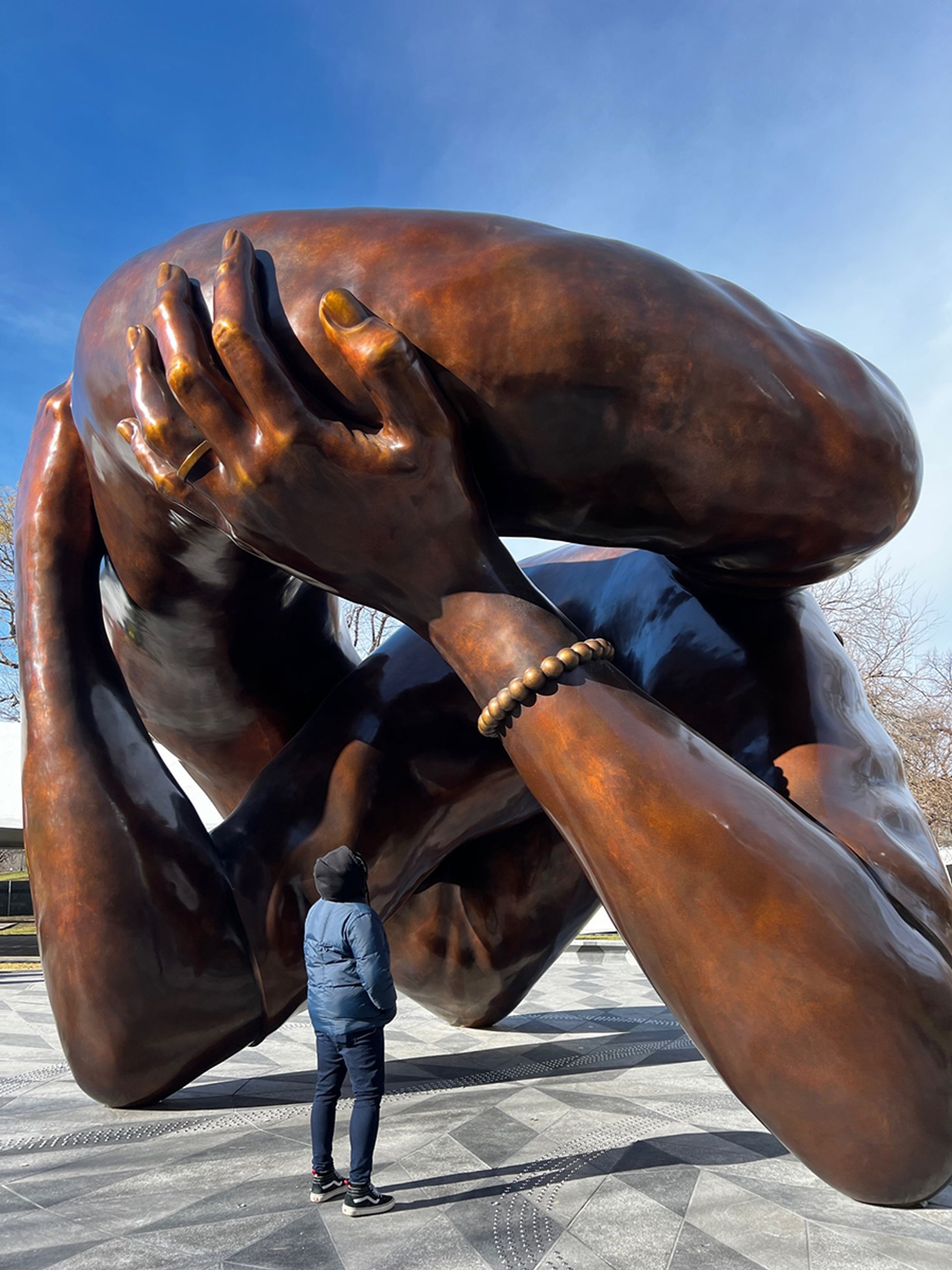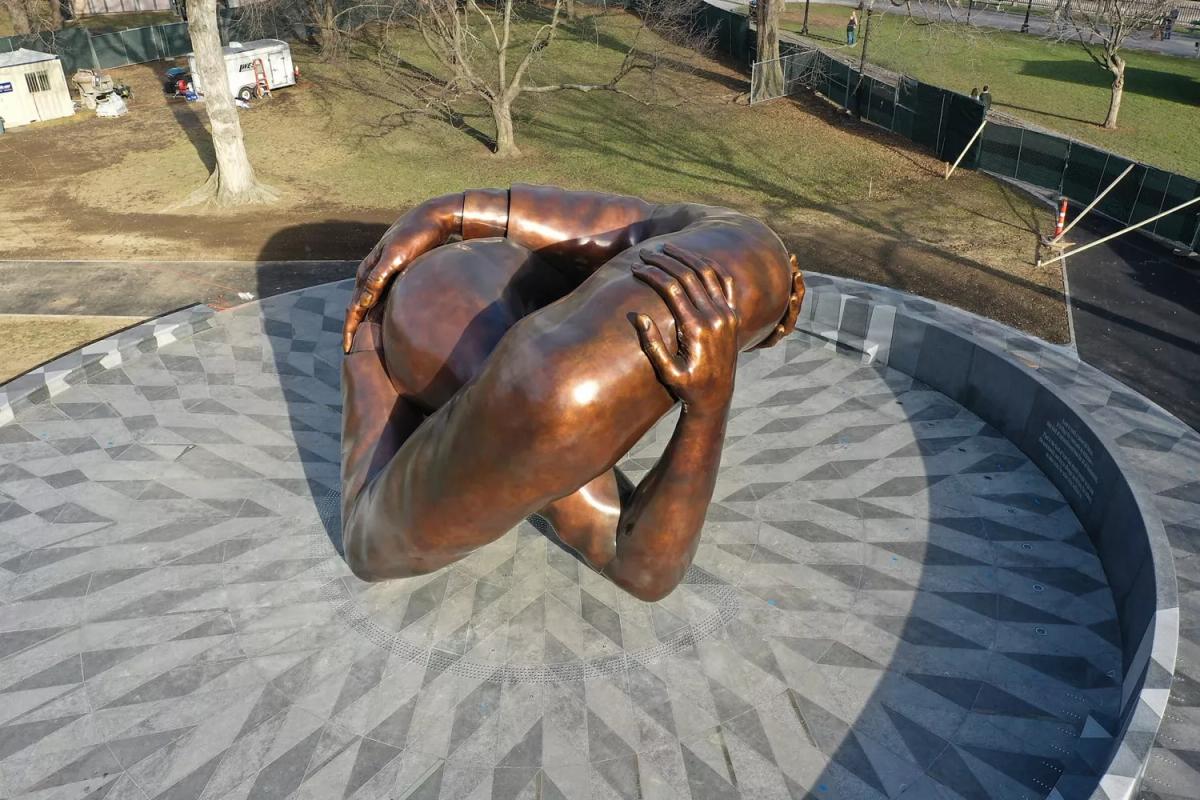A long awaited memorial honouring the late civil rights leader Martin Luther King Jr and his wife, Coretta Scott King, was unveiled 13 January at the Boston Common in Massachusetts. The Embrace, conceived by the US artist Hank Willis Thomas and the Boston-based design studio MASS Design group, was five years in the making, comprising more than 600 separate bronze parts, a number of which were fused together at a foundry in Washington state.
The Embrace sculpture is based on a photograph showing the Kings hugging after Martin Luther King Jr. received the Nobel Peace Prize in 1964. The work only features the couple’s arms; plaques honouring local civil rights leaders encircle the piece. The sculpture reportedly cost $10m with funding coming from the Embrace Boston fund, which is part of the Boston Foundation (a non-profit community organisation).

An alternate view of the sculpture that some have deemed less flattering
Courtesy of the artist and Pace gallery
The new work has received a mixed critical response. Seneca Scott, a cousin of Coretta Scott King, writes in Compact magazine: “The new Boston sculpture ‘honouring’ Dr. Martin Luther King and his wife, Coretta Scott King, looks more like a pair of hands hugging a beefy penis than a special moment shared by the iconic couple.” Laura Raicovich, the former executive director of Queens Museum in New York, posted meanwhile on Instagram: “Such a moving project Hank!” while Arndrea Waters King—the wife of Martin Luther King III—marvelled at “Those hands,” adding, “the way they clasp and hold onto each other is just a remarkable statement of mutual love and solidarity.”
In 2019, Thomas told us: “I think public art is propaganda, frankly. Most of the public art we grew up around was white men on horses looking down on us. The question of the day is, how do we imagine new public art? A new way of championing the spirit of people who we find inspiration from—athletes, activists, yes sometimes maybe soldiers. But we have so many memorials for war and so few for peace. That can’t be by accident, and it’s not sustainable for our psyche.”
Thomas has worked with the MASS Design group previously, producing a temporary memorial to victims of gun violence at the National Building Museum in Washington, DC. The Gun Violence Memorial Project; the piece was developed with two prevention organisations alongside families who have been affected by shootings.
Thomas recently joined Pace Gallery, which says on its website that “throughout his career, Thomas has examined the structures, myths, and images that reinforce economic and racial prejudice, as exemplified by mass media, advertising, and popular culture”. Thomas will also still be represented by New York’s Jack Shainman Gallery, which held his first solo exhibition in 2006.


